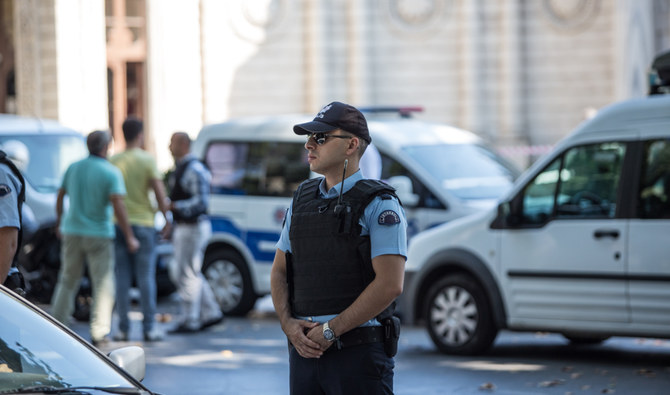
- ARAB NEWS
- 14 Jul 2025
Since 1975
ANKARA: A wide-ranging organ trade network led by Jordanian and Palestinian nationals in Istanbul has been busted by the Turkish authorities.
Ten people, four ringleaders and six individuals who were about to sell their organs or get transplants, were caught and four were immediately imprisoned.
The network was running the business using forged documents at a hospital in Beylikduzu, on the European side of Istanbul, in exchange for $50,000 per case.
The case came to light when Turkish doctors reported to the police department that combats migrant smuggling that the patient and the organ donor didn’t seem be relatives and had very poor communication.
The authorities turned to the Palestinian Consulate, which denied having provided such documents of kinship to the people caught.
Turkish police exposed the network by investigating hospital records and monitoring hotel locations near the hospital where illegal organ transplants were being carried out. The operation involved two raids at the hotel.
The ringleader, Hasan B., found the organ donors and receivers through his social media connections. Another person, Hasan Abu Z., welcomed people to Turkey and introduced the organ receivers to the physician, Ali Y.M., with the help of a middleman, Ahmad M. These four members of the network were arrested.
The network named their illegal trade “VIP Service from the hotel to the hospital,” eyeing clients from Arab countries while looking for people who could sell their organs. The blood groups of people in need of kidneys were also exposed in social media posts.
The network forged kinship and birth certificates to make them look as if they were from the foreign consulates.
Money and fake documents were confiscated during the operation. Out of the $50,000, $10,000 was given to the organ donor and $15,000 to the private hospital. The network made $25,000 on each case.
Six people who were kept by the network in a hotel in Istanbul were released on condition of judicial control. The patients were Jordanian and Palestinian nationals.
Unregulated organ trafficking and illegal transplant have shown a shocking trend in the region for a while. Last year, several Syrian refugees were found to be selling their organs on the black market out of desperation to survive financially.
Social media platforms, especially Facebook, were used extensively by organ brokers for illegal operations offering money to desperate refugees who would sell their livers or kidneys. However, the donors were only paid half the agreed price and usually left without care after the operation.
It is illegal to sell and buy human organs in Turkey. Any person who removes an organ from another person without his/her legal consent and any person who buys or sells an organ or acts as an intermediary for such activities faces a jail sentence of five to nine years, while those who make an announcement or engage in commercial advertising to secure organs can be imprisoned for up to one year.
For the operation to take place legally, the organ donor has to prove that he is a relative of the recipient. However, the trafficking networks prepare counterfeit documents to bypass Turkish laws.
Under the 2018 Declaration of Istanbul on Organ Trafficking and Transplant Tourism, international organizations issued guidelines for health officials and policymakers, noting that “trafficking in human organs and trafficking in persons for organ removal should be prohibited and criminalized.”